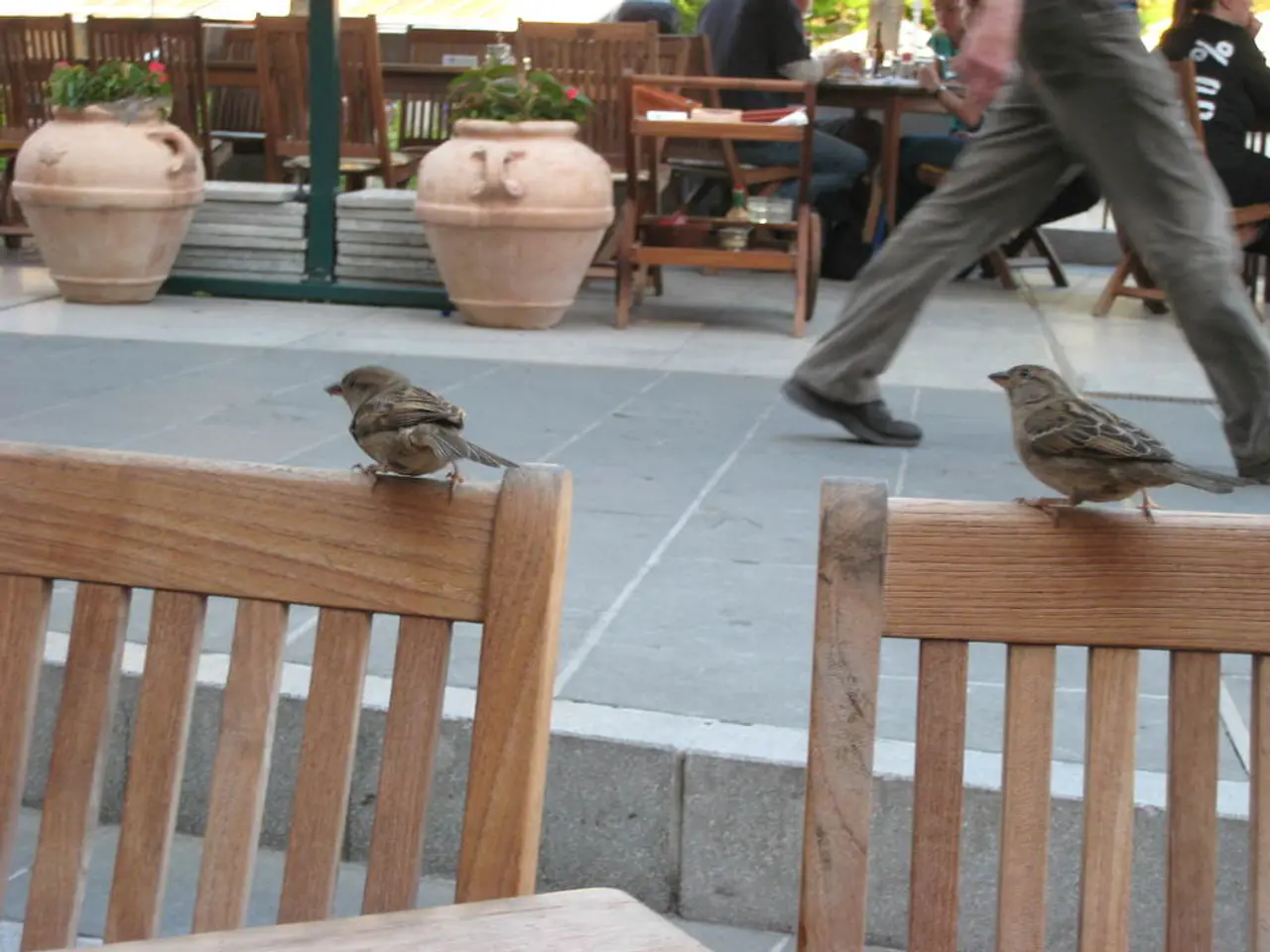Methods for Maintaining Fitness and Nutrition During Journeys: Advice on Dieting and Workouts
Traveling is an exhilarating journey to explore new landscapes, cultures, and delicacies. Yet, maintaining your health during travel can sometimes seem like a challenge, with long flights, unusual food, and packed schedules. Fear not! This comprehensive guide will show you how to stay healthy while on the go, ensuring your trip is not only unforgettable but also fun and energizing.
Planning ahead is key
Make smart decisions before your adventure begins. Research the destination, familiarize yourself with local markets, grocery stores, and fitness facilities. Identify hotels with gyms, swimming pools, or nearby fitness studios. Look for parks, walking trails, or outdoor activities to stay active and fresh.
Pack smart
Healthy snacks will help you resist the pull of unhealthy convenience foods. Consider packing nuts, seeds, protein bars, dried fruits, whole-grain crackers, and nut butter packets. A reusable water bottle is a must to stay hydrated during flights and long journeys.
Eating on the road
- Choose balanced meals. Opt for vegetable-rich dishes, lean proteins, and whole grains when dining out.
- Explore local produce. Visit markets for fresh fruits and vegetables, or snack on bananas, apples, or oranges.
- Be mindful of buffet choices. Fill half your plate with vegetables, add a portion of lean protein, and limit high-calorie items.
- Avoid sugary and processed foods. While indulging occasionally is okay, try to keep these to a minimum to avoid energy crashes and digestive issues.
- Stay consistent with meal times. Maintain a regular eating schedule to support digestion and energy levels.
Exercise on the go
- Embrace walking. Walk when possible instead of taking taxis or public transport. Plan walking tours, nature hikes, and use a pedometer or smartphone app to track your steps.
- Make use of hotel gyms or bodyweight exercises. Even short workouts can boost energy levels.
- Join local fitness classes, try a dance lesson, martial arts session, or participate in outdoor activities like hiking, biking, swimming, or kayaking.
Sleep well and manage jet lag
- Sync your schedule to the local time. Exposure to natural light during the day helps your body adjust faster.
- Prioritize sleep. Rest 7-8 hours each night. Use earplugs and eye masks for a better night's sleep in unfamiliar surroundings.
- Avoid heavy meals and caffeine close to bedtime.
Maintaining mental health
- Practice mindfulness. Relax with a few minutes of guided meditation each day. Deep breathing exercises can help reduce stress.
- Stay connected. Talk to family and friends or join group tours to avoid feeling lonely.
- Make time to relax. Balance sightseeing with time to unwind and recharge.
Staying safe
Food Safety
- Eat at clean, busy vendors. Choose freshly cooked food over pre-prepared items. Wash fruits and vegetables thoroughly.
- Use bottled or filtered water. In regions where tap water is not safe, avoid ice cubes and carry a water purifier or purification tablets.
By following these tips and incorporating the additional strategies mentioned in the enrichment, staying healthy and happy during your travels will not only feel achievable but enjoyable and fulfilling. So pack your bags, and embrace a healthy adventure!
FAQs
Q: How can I maintain a healthy diet during travel?
A: Plan ahead for healthy meals, pack nutritious snacks, and opt for balanced options when dining out. Stay hydrated and avoid excessive sugary and processed food.
Q: What are some ways to stay fit on the road?
A: Walk often, use hotel gyms, practice bodyweight exercises, participate in local fitness classes, and take advantage of outdoor activities. Mix exercise with relaxation to maintain overall mental well-being.
Q: How can I prepare my body for travel?
A: Maintain a healthy diet, stay hydrated, and rest well before your trip. Engage in light exercise and supplement with vitamins if needed. Stretch before long flights and avoid heavy meals prior to travel.
Q: What is the healthiest way to travel?
A: Focus on staying hydrated, eating nutritious meals, getting adequate rest, and moving frequently. When flying, stretch regularly, avoid dehydrating beverages, opt for healthy snacks, and make an effort to stay active during travel breaks.
Q: How to stay happy in life?
A: Cultivate positivity, practice gratitude, and maintain healthy relationships. Pursue hobbies you love, exercise regularly, manage stress, and get good sleep. Helping others and setting personal goals contribute to long-term happiness.
Q: What is the number 1 safest way to travel?
A: Air travel is statistically considered the safest mode of transportation due to strict safety regulations and low accident rates compared to cars, buses, and trains.
Q: What is a healthy breakfast?
A: A healthy breakfast includes protein, fiber, and healthy fats. Examples include oatmeal with nuts and berries, Greek yogurt with granola, or whole-grain toast with avocado and eggs.
Q: How do I become healthy in 30 days?
A: Focus on small, consistent lifestyle changes such as eating whole foods, cutting out sugar, drinking plenty of water, and exercising daily. Prioritize sleep and manage stress through relaxation techniques.
Q: How do I get in shape?
A: Combine cardiovascular exercises, strength training, and a balanced diet. Consistency is key-set achievable goals, stay active, and monitor your progress.
- Planning smart means researching local markets, grocery stores, and fitness facilities in your destination before departure.
- When dining out, make balanced choices by opting for vegetable-rich dishes, lean proteins, and whole grains.
- Bring along nutritious snacks like nuts, seeds, protein bars, dried fruits, whole-grain crackers, and nut butter packets to resist unhealthy convenience foods.
- Embrace walking by using it as transportation or participating in walking tours, nature hikes, and tracking your steps with a pedometer or smartphone app.
- To sync your body with the local time, make an effort to expose yourself to natural light during the day and prioritize 7-8 hours of sleep each night.




